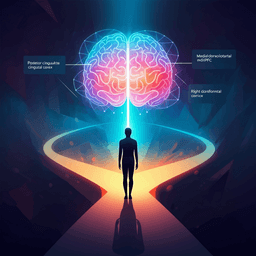
Psychology
Reward expectation yields distinct effects on sensory processing and decision making in the human brain
A. Sengupta and D. Sridharan
Reward expectation robustly guides attention and decisions. This study, conducted by Ankita Sengupta and Devarajan Sridharan, shows that space-specific versus choice-specific reward expectations separately modulate sensory sensitivity and decisional bias, with distinct neural signatures (ERP gain, alpha lateralization, pre-stimulus alpha suppression) revealing dissociable mechanisms linking reward, attention, and choice.
~3 min • Beginner • English
Related Publications
Explore these studies to deepen your understanding of the subject.







